CBN may offer anti-inflammatory benefits in addition to its other therapeutic effects. More and more people are discovering CBN’s potential for pain relief, sleep enhancement, and the lowering of inflammation.

Inflammation and pain affect millions of people. While traditional approaches to treating inflammation involve pharmaceutical drugs, there is growing interest in exploring alternative options. Let’s dive into how inflammation impacts the body and ways CBN could potentially help.
What is Inflammation?
Inflammation is the body’s natural way of responding to injuries and infections. When something harmful or irritating affects the body, the immune system triggers an inflammatory response. This response involves sending cells and chemicals to the area impacted, protecting and promoting its healing process.
Inflammation Symptoms
When inflammation occurs, it can lead to redness and swelling as more blood flows to the area, trying to deliver nutrients and immune cells. You might experience heat and pain when something is inflamed, causing localized discomfort. It can also lead to tightness and decreased functionality, such as restricted movement.
Beneficial Inflammation (Short-Term)
Inflammation is a good thing when it happens in response to an injury or infection.
Inflammation is supposed to be a short-term, localized response that helps the body heal. Acute inflammation will generally subside in a few weeks once the healing is complete.
Problem Inflammation
Chronic inflammation is a prolonged condition that negatively impacts the body and your overall health. Research shows that frequent or long-term inflammation can contribute to tissue damage, autoimmune conditions, metabolic disorders, and organ dysfunction.


THC: 10 mg | CBC: 10 mg | CBD: 10 mg | CBG: 5 mg | CBN 5mg
What is CBN?
Cannabinol (CBN) is a minor cannabinoid found in cannabis plants. CBN is derived from the degradation of THC. As THC is exposed to air and heat over time, some percentage turns into CBN.
There are many potential benefits of CBN, such as improved sleep, appetite stimulation, anxiety reduction, and anti-inflammatory effects. (Read more about what CBN is good for.)
Our high-quality CBN gummies are the perfect way to get the benefits of CBN and a good night’s rest.
How Does CBN Help with Inflammation?
CBN works with the body through the endocannabinoid system (ECS). This is a cell-signaling system of neurotransmitters and receptors (CB1 and CB2). The ECS helps regulate physiological processes such as pain and mood perception, immune responses, memory and learning, appetite, and sleep.
The neurotransmitters act as messengers, sending signals throughout the body. The receptors receive these signals and respond where necessary. CB1 receptors are primarily found in the central nervous system, including the brain and spinal cord. CB2 receptors are mainly found in the peripheral nervous system, immune cells, and peripheral tissues. Research suggests that both CB1 and CB2 receptors are involved in inflammatory hypersensitivity, which can be therapeutic during inflammatory pain.
As an alternative to other anti-inflammatory drugs, CBN products can reduce inflammation and alleviate pain. The potential benefits of CBN for inflammation occur through the ECS. CBN has a binding effect on the CB1 and CB2 receptors, like neurotransmitters do. Once CBN binds to the receptors, it can help regulate certain activities in the body.
Studies have shown that cannabinoids can suppress the inflammatory response and promote immunoregulation. CBN shows potential for interacting with the CB2 receptors that are primarily found in immune cells. When the CB2 receptors are activated by CBN, it can help regulate the immune response and mitigate inflammation.
Inflammation is often accompanied by pain, and CBN may offer pain relief. When CBN interacts with the CB1 receptors, it shows the potential for having analgesic properties that relieve chronic pain. This offers additional relief from inflammatory health conditions and helps those with chronic muscle pain.
Some of the most common inflammatory diseases are:
- Crohn’s disease
- Multiple sclerosis
- Amyotrophic lateral sclerosis (ALS)
- Rheumatoid arthritis
- Psoriatic arthritis
- Temporomandibular disorders (TMD)
A study entitled “Cannabidiol, cannabinol, and their combinations act as peripheral analgesics in a rat model of myofascial pain” concluded that the effects of CBN could help people with myofascial pain syndrome. When CBN binds to CB1 receptors, it can decrease the transmission of pain signals. This makes the pain feel less intense and more manageable, especially for those with muscle, joint, and bone discomfort.
CBN for Neuroinflammation
Neuroinflammation can occur within the brain and nervous system. When the brain detects injury or threats, it triggers an inflammatory response that, if excessive, can negatively impact brain function and contribute to the progression of neurological issues.
Chronic neuroinflammation can cause damage to the neurons responsible for transmitting information in the brain. This can lead to cognitive impairment that might contribute to the development of Parkinson’s disease and Alzheimer’s disease.
Research suggests that cannabinoids have neuroprotective properties. These neuroprotective effects indicate its ability to protect neurons from damage and mitigate neuroinflammation. Activation of the cannabinoid receptors by CBN can suppress proinflammatory molecules and regulate immune responses to reduce the intensity of inflammation.
CBN for Inflammatory-Related Anxiety
People who experience chronic inflammation often struggle with their mental health. Inflammatory processes activate the body’s stress responses, which lead to the release of stress hormones like cortisol. Cortisol regulates metabolism, immune response, and blood pressure in response to stress. Prolonged elevated levels of cortisol due to chronic inflammation can increase anxiety.
Inflammation can also disrupt neurotransmitters like serotonin and dopamine. Serotonin regulates mood, appetite, and sleep. Dopamine regulates motivation and reward processing in the brain. Disrupting the balance of these neurotransmitters can lead to anxiety.
CBN benefits anxiety through the CB1 receptors in the ECS, modulating the activity of serotonin and dopamine, and regulating mood and emotional processing. The potential benefits of CBN’s anxiolytic properties make it useful for those who might feel an increase in anxiety symptoms due to inflammation.
Calm your anxiety with our Relax Gummies in fresh watermelon flavors. We’ve added Ashwagandha to our hemp extracts to reduce stress and promote relaxation.
Some research suggests that taking multiple cannabinoids together could be the best way to improve your anxiety. This scientific hypothesis is known as the entourage effect, which proposes that cannabis compounds have a natural synergy with one another. This synergy offers a more well-rounded, whole-plant medicinal experience.
Though research about whether the entourage effect is real or not still needs additional information and studies, it shows promise as a valid theory. The entourage effect is not something one can feel, but refers to the longer-term benefits of using CBN, CBD, and THC together. Many people choose to microdose edibles for anxiety with low doses of tetrahydrocannabinol (THC).
Plus, THC has anti-inflammatory properties, too. Many people choose to microdose THC for pain and inflammation because it allows them to reap the benefits of THC without experiencing the psychoactive effects associated with the cannabinoid. CBD is also known to downregulate THC, making it a more tolerable substance.
Shop our collection of full-spectrum CBD gummies with low doses of THC to personalize your cannabis experience with high-quality hemp extracts for a variety of uses.
CBN for Inflammatory-Related Sleep Disturbances
Inflammation impacts sleep patterns and your quality of rest, which affects your overall health and wellness. Pain and discomfort may make it challenging to transition the body to rest mode, and certain positions may make inflammation worse.
Inflammation can also disrupt the body’s natural circadian rhythms, the internal clock that regulates your sleep-wake cycle. Inflammatory molecules known as cytokines might interfere with the production and release of melatonin, a key sleep component. Melatonin is a naturally occurring hormone that promotes drowsiness at night.
Our collection of melatonin gummies supports enhanced relaxation and a restful night’s sleep, made with all-natural flavors and 100% American organic hemp.
CBN’s health benefits include its sedative effects, helping people combat insomnia and other sleep-related issues. Consuming CBN as a sleep aid could calm the body and support an easeful transition into a sleep state.
Try our Extra Strength Sleep Drops for an ideal sleep companion. These CBD capsules are made with a full-spectrum hemp extract containing CBD, THC, and other rare cannabinoids.
CBN for Inflammation-Related Appetite Issues
Inflammation can disrupt your appetite. Cytokines (inflammation-causing molecules) can interfere with signaling pathways involved in hunger. This can cause some people to experience a decrease or increase in appetite, depending on their medical condition.
Inflammation can also disrupt hormones involved in metabolism, making weight management more difficult. Some inflammatory conditions, like rheumatoid arthritis, inflammatory bowel disease, and other autoimmune disorders, can impact appetite and cause changes in eating patterns.
When CBN interacts with the receptors in the ECS, it can regulate your appetite. For those who experience nausea and vomiting due to their condition, CBN can help as an appetite stimulant.
CBN for Cancer-Related Inflammation
Those with cancer must manage inflammation to promote their treatment, care, and overall well-being. Chronic inflammation may create an environment where cancer cells can grow and thrive.
Inflammatory molecules can stimulate the production of factors that support tumor growth. When people with cancer experience chronic inflammation, damage to the healthy tissue surrounding the tumor could occur. These inflammatory molecules might destroy the tissue, causing more pain, progressing tumor growth, and causing cell death.
Research shows cannabinoids have therapeutic benefits for people with cancer. Using CBN could regulate immune responses and tend to inflammation. CBN’s analgesic properties are useful in alleviating pain associated with cancer-related inflammation. People undergoing cancer treatments like chemotherapy could use CBN to subdue nausea and create a more balanced relationship with food. CBN’s pain-relieving properties are useful for those who might experience procedure-related inflammation, like breast cancer surgery.
What are the Side Effects of CBN?
CBN is generally considered a safe and well-tolerated substance. Some potential side effects of CBN might include drowsiness, dizziness, dry mouth, and nausea. These risks and side effects are typically mild and temporary. Some people have experienced an increase in heart rate when taking too much CBN, but it is not likely.
As with all medical cannabis, start with low doses. Learning to microdose cannabis is the best way to achieve the benefits of the substance, monitor your body’s response, and avoid potential side effects. (Read more about the benefits of microdosing THC.)
Buy CBN products from brands you trust, like us. All of our vegan CBD gummies are made with natural flavors and ingredients and are gluten-free, non-GMO, and made with 100% American organic hemp.
Product QUIZ
Need help deciding what product is best for you? Take our quiz, just three questions until your perfect match!
Is CBD or CBN Better for Inflammation?
When it comes to inflammation, both CBD and CBN have benefit. Cannabidiol (CBD) is the main non-psychoactive cannabinoid in cannabis and has been extensively studied for its therapeutic properties. Similarly to CBN, some of the benefits of CBD include alleviating anxiety, improving sleep, neuroprotection, and reducing pain and inflammation.
CBD does not quite work with the ECS the same way CBN does. It doesn’t directly bind to the cannabinoid receptors but rather antagonizes them. CBD’s interactions with this system are still strong, particularly with the CB2 receptors. These receptors are primarily found in the immune and peripheral tissues involved in inflammation.
Studies have shown that CBD has anti-inflammatory and antioxidative properties. CBD helps regulate immune responses and reduces proinflammatory molecules from release. This is beneficial to those with inflammatory conditions like multiple sclerosis and arthritis, or inflammatory skin disorders. Many wellness companies are incorporating CBD oils into their skincare products. CBD creams, moisturizers, And other CBD products could reduce swelling and redness caused by acne.
When deciding between CBN vs. CBD for inflammation, it’s important to know that the effects could vary from person to person. Why you’re using cannabis, how you plan to use it, and how much you plan to take will all determine how you will feel after use. CBD generally takes the spotlight because of its extensive research and wide availability of products, but CBN’s potential for having anti-inflammatory properties keeps it in the running.
Try our broad-spectrum CBD gummies that are designed to keep you relaxed at any time of the day.
CBN FAQ
CBN will not generally make you feel high. Though CBN is technically considered a mildly psychoactive substance because it is derived from THC, you’d have to take extremely large doses of CBN to feel high. People might experience calm, soothing feelings when using CBN.
THC, CBN, and CBD all show promise for having anti-inflammatory and pain-relieving properties. THC has some anti-inflammatory properties, but these are generally dose-dependent. We recommend microdosing THC for inflammation if you’re going to use this cannabinoid.
CBD is widely studied for its anti-inflammatory properties, which regulate immune responses and reduce inflammation. When cannabis was medically reviewed, studies found that cannabidiol, cannabinol, and their combinations act as peripheral analgesics in myofascial pain. This means taking multiple cannabinoids together with terpenes could offer the best experience.
CBN can alleviate joint pain due to its anti-inflammatory and pain-relieving effects on the body. CBN regulates immune responses and can reduce inflammation in the joints. When CBN interacts with the cannabinoid receptors involved in pain signaling, it can reduce pain perception and sensation. CBN has a relaxing effect on the body, which might be helpful for those with muscle tension associated with joint pain.
How long CBN takes to work depends on your method of consumption. If you’re vaping CBN or using it sublingually, the effects kick in rather quickly, within 10 minutes. Oral methods like CBN gummies or capsules take longer because they need to go through a digestive process before entering the bloodstream. The onset of gummies and other edibles is around 30 minutes to 2 hours after consumption.
Try our collection of CBN gummies to help you improve sleep onset and reduce sleep disturbances.
CBN is generally considered safe for daily consumption, with little to no health risk. However, due to the fact that research on CBN is still new, it’s best to consult with a healthcare professional if you plan to take CBN every day.
CBN interacts with the endocannabinoid system, a cell-signaling system made up of neurotransmitters and receptors. This system maintains the balance of several physiological functions like learning and memory, sleep, appetite, mood, pain, and inflammatory responses. CBN binds to the receptors in this system to activate their effects. By interacting with the ECS, CBN offers sleep-inducing effects, pain and inflammation relief, neuroprotection, anxiety reduction, and appetite stimulation.
Top Sellers
New? Start with our Ultimate Sampler!

THC: 10 mg | CBC: 10 mg | CBD: 10 mg | CBG: 5 mg | CBN 5mg
Resources
Inflammation. (2021, April 28). National Institute of Environmental Health Sciences. https://www.niehs.nih.gov/health/topics/conditions/inflammation/index.cfm
Chen, L., Deng, H., Cui, H., Fang, J., Zuo, Z., Deng, J., Li, Y., Wang, X., & Zhao, L. (2017, December 14). Inflammatory responses and inflammation-associated diseases in organs. PubMed Central (PMC). https://doi.org/10.18632/oncotarget.23208
Anthony, A. T., Rahmat, S., Sangle, P., Sandhu, O., & Khan, S. (2020, September 14). Cannabinoid Receptors and Their Relationship With Chronic Pain: A Narrative Review. PubMed Central (PMC). https://doi.org/10.7759/cureus.10436
Nagarkatti, P., Pandey, R., Rieder, S. A., Hegde, V. L., & Nagarkatti, M. (n.d.). Cannabinoids as novel anti-inflammatory drugs. PubMed Central (PMC). https://doi.org/10.4155/fmc.09.93
Cannabidiol, cannabinol and their combinations act as peripheral analgesics in a rat model of myofascial pain - PubMed. (2019, August 1). PubMed. https://doi.org/10.1016/j.archoralbio.2019.05.028
Hergert, D. C., Robertson-Benta, C., Sicard, V., Schwotzer, D., Hutchison, K., Covey, D. P., Quinn, D. K., Sadek, J. R., McDonald, J., & Mayer, A. R. (2021, July 1). Use of Medical Cannabis to Treat Traumatic Brain Injury. PubMed Central (PMC). https://doi.org/10.1089/neu.2020.7148
Dariš, B., Verboten, M. T., Knez, E., & Ferk, P. (n.d.). Cannabinoids in cancer treatment: Therapeutic potential and legislation. PubMed Central (PMC). https://doi.org/10.17305/bjbms.2018.3532
Atalay, S., Jarocka-Karpowicz, I., & Skrzydlewska, E. (2019, December 25). Antioxidative and Anti-Inflammatory Properties of Cannabidiol. PubMed Central (PMC). https://doi.org/10.3390/antiox9010021
nama CBD FDA & Legal Disclaimer
Our products are not intended to diagnose, treat, cure, or prevent any disease. They are not a replacement for prescription medications and have not been evaluated by the Food and Drug Administration (FDA).
The information provided on this website does not, and is not intended to, constitute legal advice or any statements of the status of any laws. Any information, content, and materials available on this site are for general informational purposes only, and are not intended to be relied upon for any purpose.
Readers of this website should contact their attorney to obtain advice with respect to any particular legal matter including decisions on what products are, or are not, legal to sell, possess, or consume. No reader, user, or browser of this site should act or refrain from acting on the basis of information on this site without first seeking legal advice from their own counsel in the relevant jurisdiction.
Only your individual attorney can provide assurances that the information contained herein – and your interpretation of it – is applicable or accurate for your particular situation. Use of, and access to, this website or any of the links or resources contained within the site do not create an attorney-client relationship between the reader, user, or browser, and website authors, contributors, contributing law firms, or committee members and their respective employers.
About
Learn
Join us on this journey

© Copyright 2026 nama Products LLC. All Rights Reserved.
†These statements have not been evaluated by the Food and Drug Administration. These products are not intended to diagnose, treat, cure or prevent any disease. All information presented here is not meant as a substitute for or alternative to information from health care practitioners. Please consult your health care professional about potential interactions or other possible complications before using any product.
††The information provided on this website does not, and is not intended to, constitute legal advice or any statements of the status of any laws. Any information, content, and materials available on this site are for general entertainment purposes only, and are not intended to be relied upon for any purpose.

By clicking ‘Yes,’ you agree to our
Terms & Conditions and Privacy Policy
123 John Doe Street
Your Town, YT 12345
Store Hours
Sun: Closed
Mon-Fri: 9:00 - 17:00
Sat: 10:00 - 13:00
What to expect at pickup
Closed
Closing at 5pm
Closing at 5pm
Closing at 5pm
Closing at 5pm
Closing at 5pm
Closing at 1pm

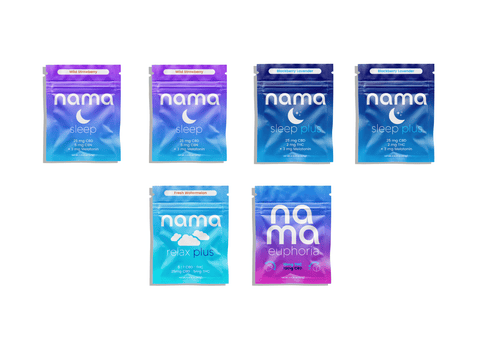
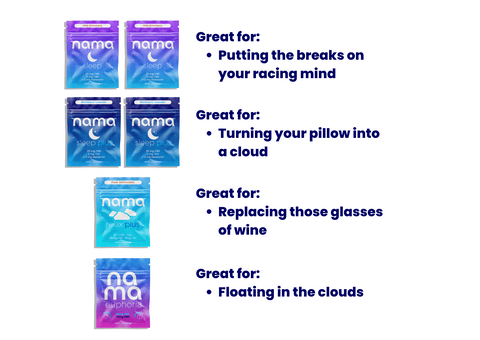
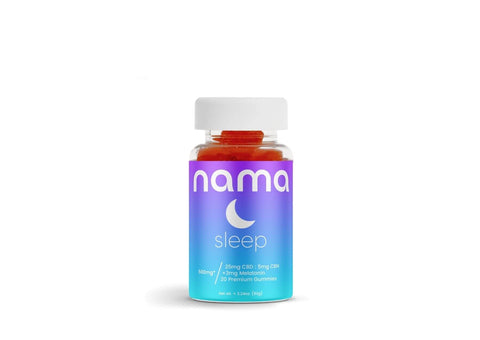
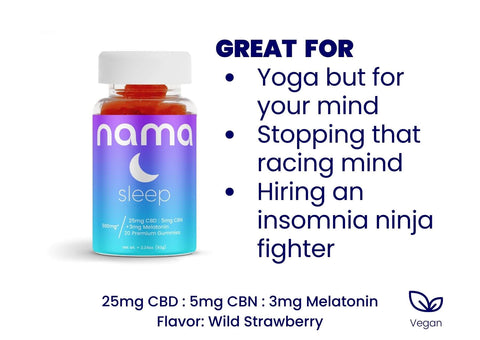
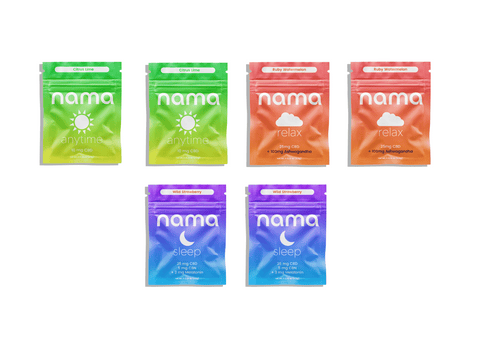
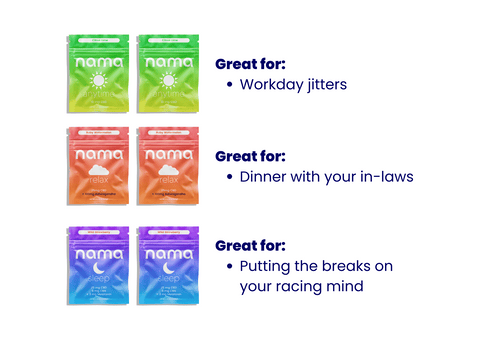
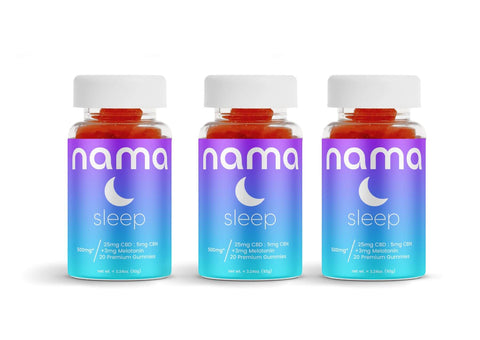
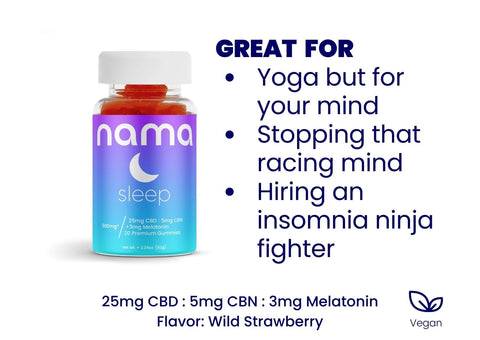
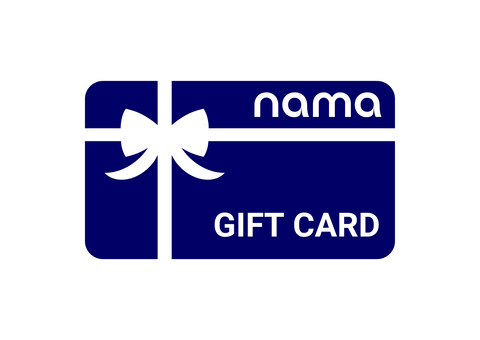









![Buzz Packs™ [THC and CBD Powder Drink Mix]](http://www.namacbd.com/cdn/shop/files/nama_buzz_packs_thc_drink_pack_white_background.png?v=1741884660&width=480)
![Buzz Packs™ [THC and CBD Powder Drink Mix]](http://www.namacbd.com/cdn/shop/files/Buzz_Packs_Label.png?v=1741884660&width=480)
![Buzz Drops™ [THC Drink Drops]](http://www.namacbd.com/cdn/shop/files/nama_thc_buzz_drops.png?v=1711412866&width=480)
![Buzz Drops™ [THC Drink Drops]](http://www.namacbd.com/cdn/shop/files/buzz-drop-wine-comparison.png?v=1736882023&width=480)
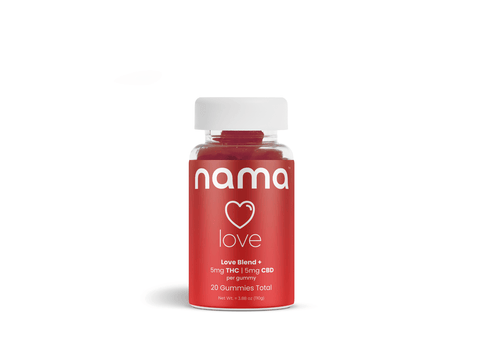
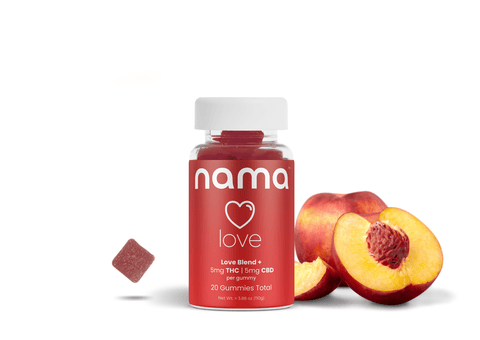


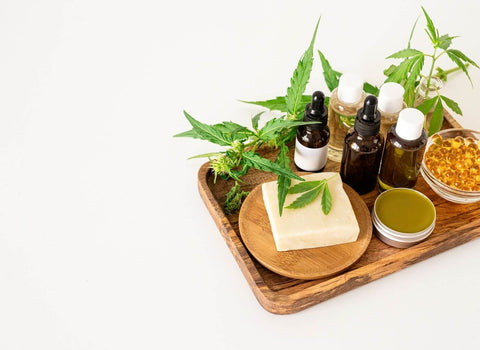


Comments (0)
There are no comments for this article. Be the first one to leave a message!